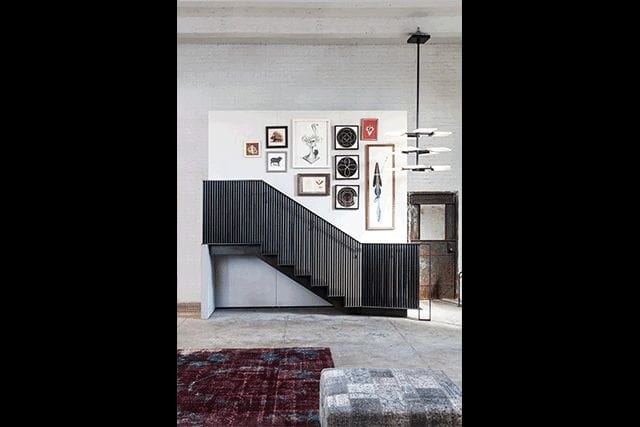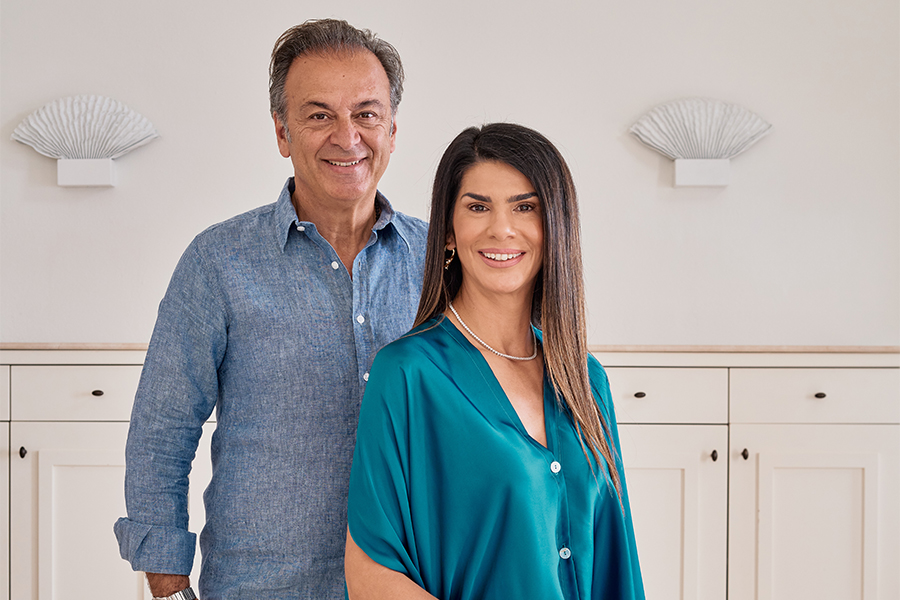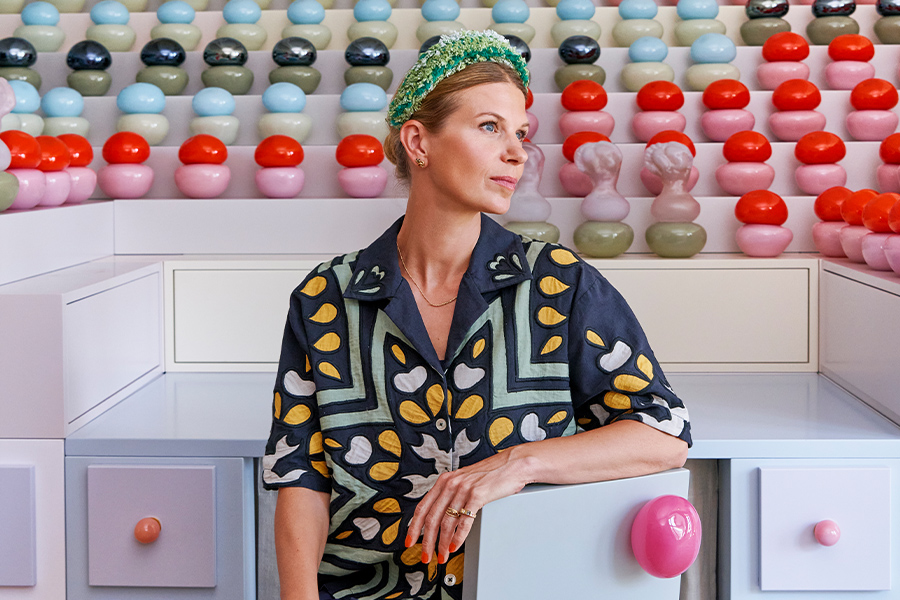Amuneal, founded by husband and wife duo Sy Kamens and Harriet Rothman in Philadelphia in 1965, may have started out fabricating magnetic shielding for the aerospace, medical equipment, and industrial electronics industries, but today, the company is known for its custom pieces for a list of high-end clients. That’s mostly due to Adam Kamens, who took over his parents’ business as CEO in 2003 and added a design-driven focus.
While working his way up the company ladder, Kamens nurtured his artistic side by opening a glassblowing studio in 1996 and launching a furniture line at Amuneal two years later. Showcasing his work at ICFF was the company’s big break, he says, which landed them Barneys as a client, making custom hangers for swimwear. This led to working on more retail, as well as hospitality projects for some big-name firms and brands: including New York’s Royalton Hotel with Roman and Williams; green lacquer tables for Soho House New York’s private dining room; decorative screen walls and operable doors with laser-cut steel patterns for the luxury suites in the W New York – Times Square; a bronze filigree staircase that layers brass onto fabricated steel at Ted Baker’s Fifth Avenue store in Manhattan; and a reception desk set for the lobby of an upcoming Zaha Hadid-designed residential building in New York’s Chelsea neighborhood.

The Amuneal-crafted staircase wall in the Associated Press’ New York headquarters comprises felt and aluminum plates and LED panels.
The urban fabricator continues to evolve beyond custom projects, debuting its first homegrown product, the metal and wood-clad Collector’s Shelving System three years ago. More recently, Kamens dabbled in lighting and casegoods, including the Butcher Block console table made from reclaimed white oak in an oxidized oak finish and the company’s take on the Murphy bed. And that’s just a hint of what’s to come from the company: Kamens bought a 60,000-square-foot warehouse in Philadelphia that will house its wood and metal production facilities, along with a 7,000-square-foot office building, bringing all of Amuneal’s designers and makers under one roof.
Indeed, the small, family-owned business that started with two people and a dog has now expanded to 150 employees in four locations. Not only is it part of the company’s philosophy to challenge itself—something it’s been doing for decades—but it’s also “important to me,” Kamens notes, “that there’s a sense of humanity in whatever we design.”



